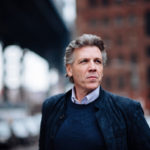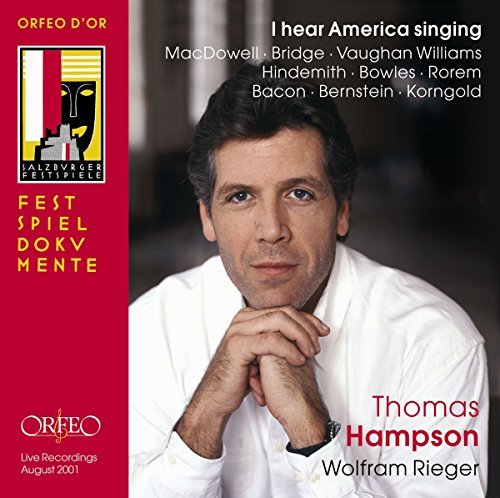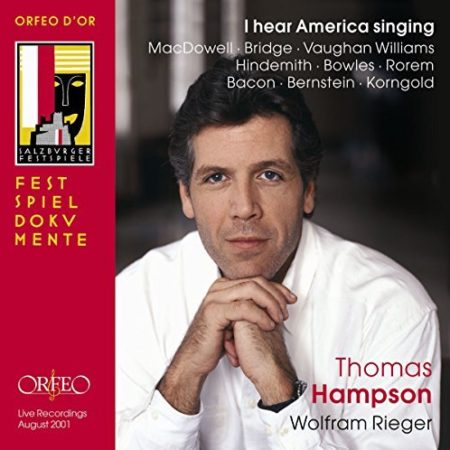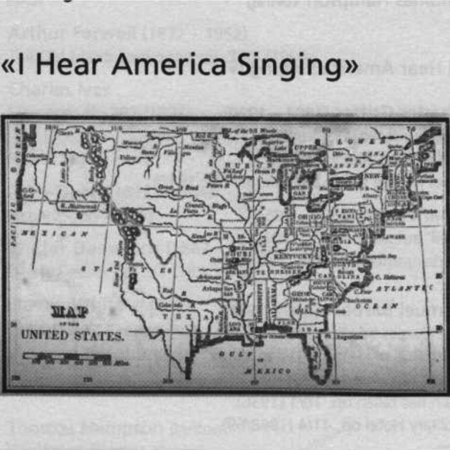An Essay by Thomas Hampson
Song is a metaphor of the imagination; it is poetic thought encapsulated in music. Poetry, while having many forms, is driven by the basic instinct to tell the story of existence. The American poetic tradition is a particularly rich narration of both being a people and becoming a culture; a culture chiseled out of a fierce independence of mind and heart and soul forever grounded in the very myriad of racial histories from which it hearkens.
The Nation “America” has always meant different things to different peoples. The place we call the New World is no less profound or real than the imagination of that New World. So many poems and so much music has been inspired from the journey inward and outward to a land where things could be thought anew. And while perhaps now in the 21st century we speak of “American poetry and music” the real story is to be found when we speak of “poetry and music in America”. The exploration of poetry and song in America invites one into the psyche of the New World, as do few other disciplines. Poets and composers in America have always been as preoccupied with the contemplation of their existence as artists as with their own unique artistic effort in America.
This self-examination is indicative of the far greater collective experience we call the “American Experience,” i.e., the passion for self realization; the challenge of existence of the one among the many; the tolerance of the specific in the context of the greater good; the obsessive love/hate dialogue with form, whether political, social, religious or musical; the confusing preoccupation with “art” vs. “popular” as concepts and certainly, above all, the persistent longing to define “it” as “American.”
It was the great philosopher, poet, preacher Ralph Waldo Emerson (1803-1882) who challenging the poet and seer to reconstruct the original self from whence “sprang the sun and the moon” and to see the body as the “circumference of the soul,” so inspired Walt Whitman (1819-1892) to burst forth in a new and vibrant and fiercely egalitarian voice as never heard before. “The United States are themselves the greatest poem,” echoing Emerson as he further exerted that “poets and not presidents are the common referees” of a nation. It is they who will absorb the traditions of the past, (of all the pasts of all the peoples) and turn them into something new and distinctly native. This will be found in what Whitman called a language recognized by ist “sonorous strength, breadth and openness.” Alexis de Tocqueville heard this sonority when he with foresight recognized that “poets living in democratic times will prefer the delineation of ideas and passions to that of persons and achievements… this forces the poet below the surface of the external… palpable to the senses… in order to read the inner soul.” It was his recognitiion of this “man alone” separated from the massive structures, both physical and mental, of Europe, gazing at a vast richness and terrifying absence that was the New World to be envisioned, created and realized.
The “Birth of the Modern,” as the historian Paul Johnson so aptly describes the age ushered in by Beaumarchais, Wordsworth, Byron, Heine, and Baudelaire, found a resonance of personal determination in the distant voices of William Cullen Bryant, Emerson, Whitman, Poe, Longfellow, Dickinson, Thoreau, and Melville. The intense personal identity that erupted into the 20th century destroying and rebuilding countries and art forms alike has always had a spiritual, even metaphysical insistence about it oft conveyed through what seems to be sentiment and melodrama but in fact is risking the subjective narrative.
Poets of this century such as T.S. Eliot, Wallace Stevens, Langston Hughes, W.H. Auden, Theodore Roethke, and Paul Goodman hearkening the challenge of Whitman, have embraced their “traditions,” re-hued their “native” and excavated below the surface, recognizing as Wallace Stevens puts it that “the first idea was not our own.” These ideas, now thoughts and words of a new world, have been a great creative impulse for the composers of the last 125 years; music in America reflecting the best of what is spontaneous and by definition eclectic in the arts.
In this episode of “I Hear America Singing,” the ambition is to explore from a distinctly non-American-music frame of mind the poetic narration just described, the composers being all of an inherent European heritage or influence in their artistic development albeit finding that which became for them the New World experience.
Three main groups separate for the sake of argument our composers in this project: The first being that of European composers remaining in Europe and from a distance being intrigued, inspired and compelled to set American poetry. These include: Benjamin Britten, Hans Werner Henze, Paul Hindemith, Ralph Vaughan Williams, and Charles Stanford. The second larger group is that of composers born and schooled in Europe but then having chosen America as their new homeland coalesced their musical heritages and disciplines with the thoughts and words of their new world. These composers include: Sam Adler, Jean Berger, Ernest Gold, Kurt Weill, Sergius Kagen, Wilhelm Grosz, and Ruth Schonthal. The final group examines the development of those composers born in America but having found their unique “American” voice from significant studies, domestication and assimilation of foreign languages in Europe. These will include: Ernst Bacon, Charles Griffes, Edward Macdowell, Aaron Copland, Virgil Thomson, Leonard Bernstein, and Ned Rorem.
And while many more European composers composed in and for America, this project is only about the musical setting of poetry written in America. Each evening will provide like the turning of a kaleidoscope a myriad of dialogues, impulses, and contradictions of the personal, cultural, racial, political and even academic traditions that are juxtaposed in the creative search to wed word and sound of disparate origins.
This seems to me the very heartbeat of song: the ability to suspend life’s successive moments and pulses for the expanded reflection of a greater present allowing for the individual to find the innermost of himself.
–Thomas Hampson, Vienna, June 2001
The Author

I Hear America Singing
Thomas Hampson, baritone
Wolfram Rieger, piano
Live performances: August 2001
Salzburg Festival, Mozarteum
Orfeo d'Or: 707062


